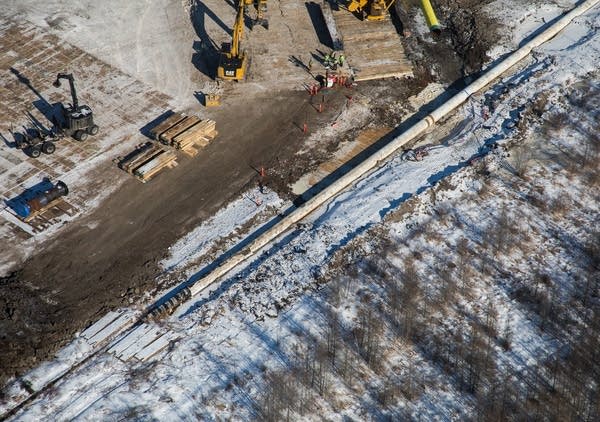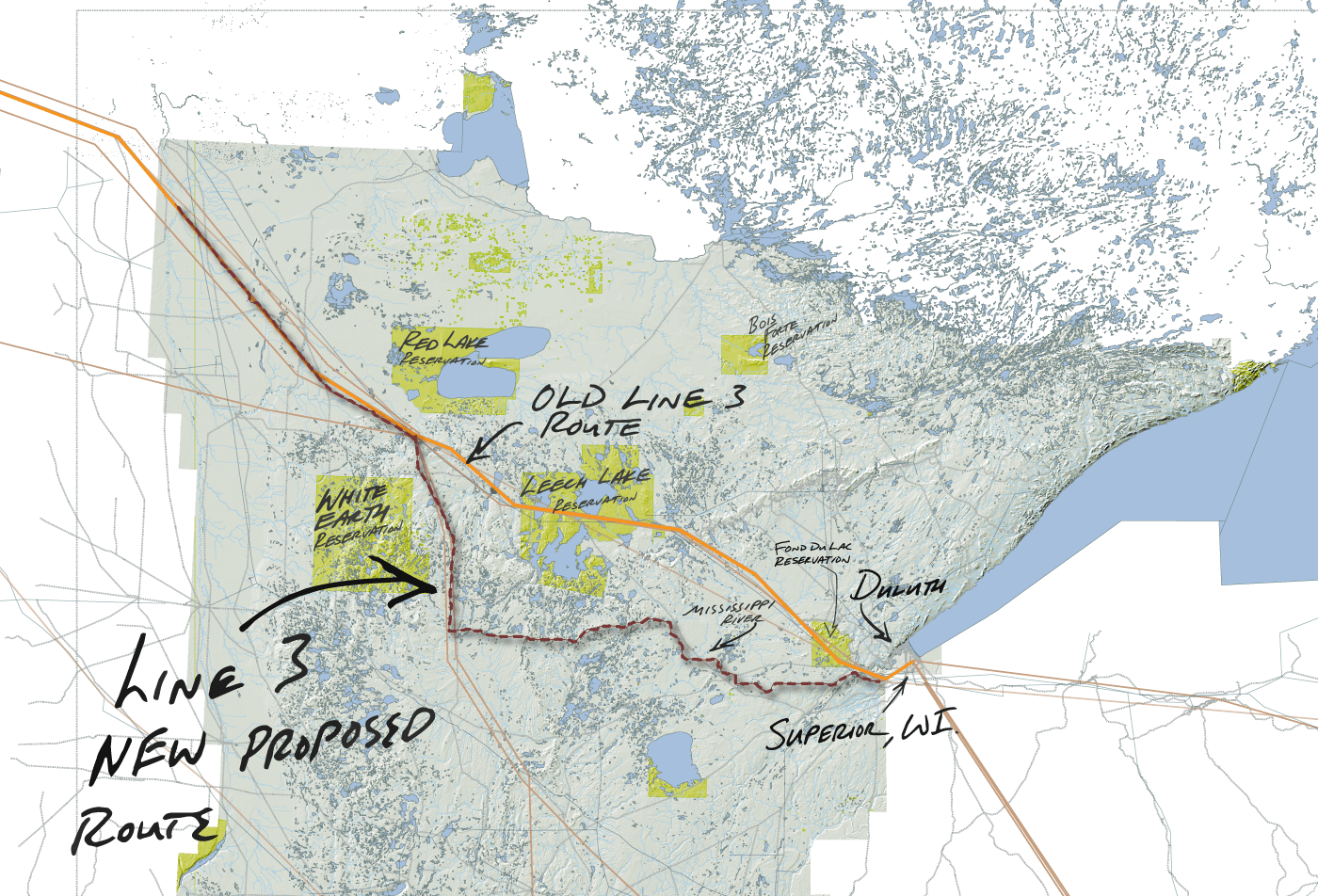Enbridge, Leech Lake Band rip Judge's Line 3 report

Go Deeper.
Create an account or log in to save stories.
Like this?
Thanks for liking this story! We have added it to a list of your favorite stories.
Both Enbridge Energy and the Leech Lake Band of Ojibwe are firing back against an administrative law judge's recommendation that the company can build its proposed Line 3 oil pipeline, but only if it builds it along the pipeline's current route across northern Minnesota.
In exceptions filed Wednesday with the Minnesota Public Utilities Commission, Enbridge called the judge's recommendation "fatally flawed," because the pipeline "cannot be built over the known and express opposition of the Leech Lake Band of Ojibwe, a sovereign nation having jurisdiction over portions of that route."
Enbridge also argued that replacing the line in its current location would cause safety and environmental risks because the line is located within 20 feet of other pipelines in a congested corridor, and would cause a long disruption in the supply of oil during construction.
Meanwhile, the Leech Lake Band called the judge's recommendation "the worst of all route alternatives because it completely disregards both the Band's sovereignty and the real safety and environmental issues" posed by building a new line along the current route, which traverses more than 40 miles of the Leech Lake reservation, including what the Band calls the best and most plentiful wild rice waters in the state.
Turn Up Your Support
MPR News helps you turn down the noise and build shared understanding. Turn up your support for this public resource and keep trusted journalism accessible to all.
The Calgary-based company wants to replace its 1960s vintage Line 3 with a new pipe that could carry nearly twice as much oil, around a partially different route across the state.

Enbridge's preferred path diverts from the current pipeline corridor near Clearbrook, Minn., heads south toward Park Rapids, before turning east to Enbridge's pipeline terminal in Superior, Wis. The company said 94 percent of landowners along that route have signed easement agreements.
That route avoids both the Leech Lake and Fond du Lac Ojibwe reservations, which the current pipeline crosses. But it has drawn sharp opposition from conservation groups and several Indian tribes, who say the risk of a spill is too great in an area with rich wild rice beds, clean lakes and the headwaters of the Mississippi River.
Opponents have also argued that the pipeline, which would carry oil from the Tar Sands region of northern Alberta, would exacerbate global climate change and isn't needed as Minnesota transitions to cleaner fuels.
In her April 23 report, Administrative Law Judge Ann O'Reilly wrote that Enbridge had established that the new pipeline is needed, citing integrity concerns with the current Line 3, which is corroding and cracking, and has spilled several times since it was first installed. She also said Minnesota refineries aren't currently able to get all the oil they request, when they want it.
But she said the negative consequences to Minnesota of the company's more southerly preferred route outweigh the benefits. She said the benefits of the proposed project would only outweigh the costs if Enbridge removed the existing line, and put the new one in the existing trench.
O'Reilly's report isn't binding. But it's expected to carry significant weight with state regulators. The judge held 16 public hearings around the state, conducted a 12-day evidentiary hearing on the proposal, and accepted more than 72,000 comments before submitting her recommendation.
The Public Utilities Commission expects to make a final decision on a Certificate of Need and Route permits in June.
But in its rebuttal to the judge's recommendation, Enbridge argued the PUC cannot disregard the Leech Lake Band of Ojibwe's sovereignty, and "lacks the authority to fully authorize in-trench replacement through the reservation."
The Leech Lake band was also strongly critical of the judge's report, calling it "a clear attack on tribal sovereignty and tribal communities."
In her April report, O'Reilly noted that Enbridge's current easements through the Leech Lake and Fond du Lac reservations expire in 2029.
Given Leech Lake's opposition to replacing Line 3 along its current route through the tribe's reservation, Enbridge could eventually have trouble renewing easements not only for Line 3, but for the additional five pipelines in the current corridor.
"Therefore, it is understandable why [Enbridge] would want to create a new corridor where it can obtain perpetual easements from private landowners and avoid tribal lands altogether," wrote Red Lake tribal attorney Joe Plumer in the tribe's exceptions to the judge's report, also filed Wednesday.
Enbridge "has a much larger issue to address with the tribes than just existing Line 3," Plumer wrote.
Indeed, in its filing, Leech Lake Band of Ojibwe attorney Grace Elliott wrote that "the Band has clearly expressed its intent to not renew its pipeline agreement in 2029 because it wants the pipelines removed as soon as possible."
But Enbridge officials insist the expiration of easements in 2029 has nothing to do with its current Line 3 proposal, which has now gone through more than three years of regulatory review.
"We need a single easement to construct a single pipeline. That's all we're after," said Guy Jarvis, Executive Vice President, Liquid Pipelines and Major Projects for Enbridge.
Jarvis said he believes Enbridge will be successful when the time comes to renew those easements.
"We're confident that the manner in which we respect their rights and engage will lead to the long-term relationship continuing."
Correction (May 10, 2018): An earlier version of the story incorrectly characterized the Leech Lake tribe's objection to the Line 3 pipeline.


